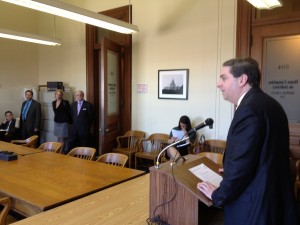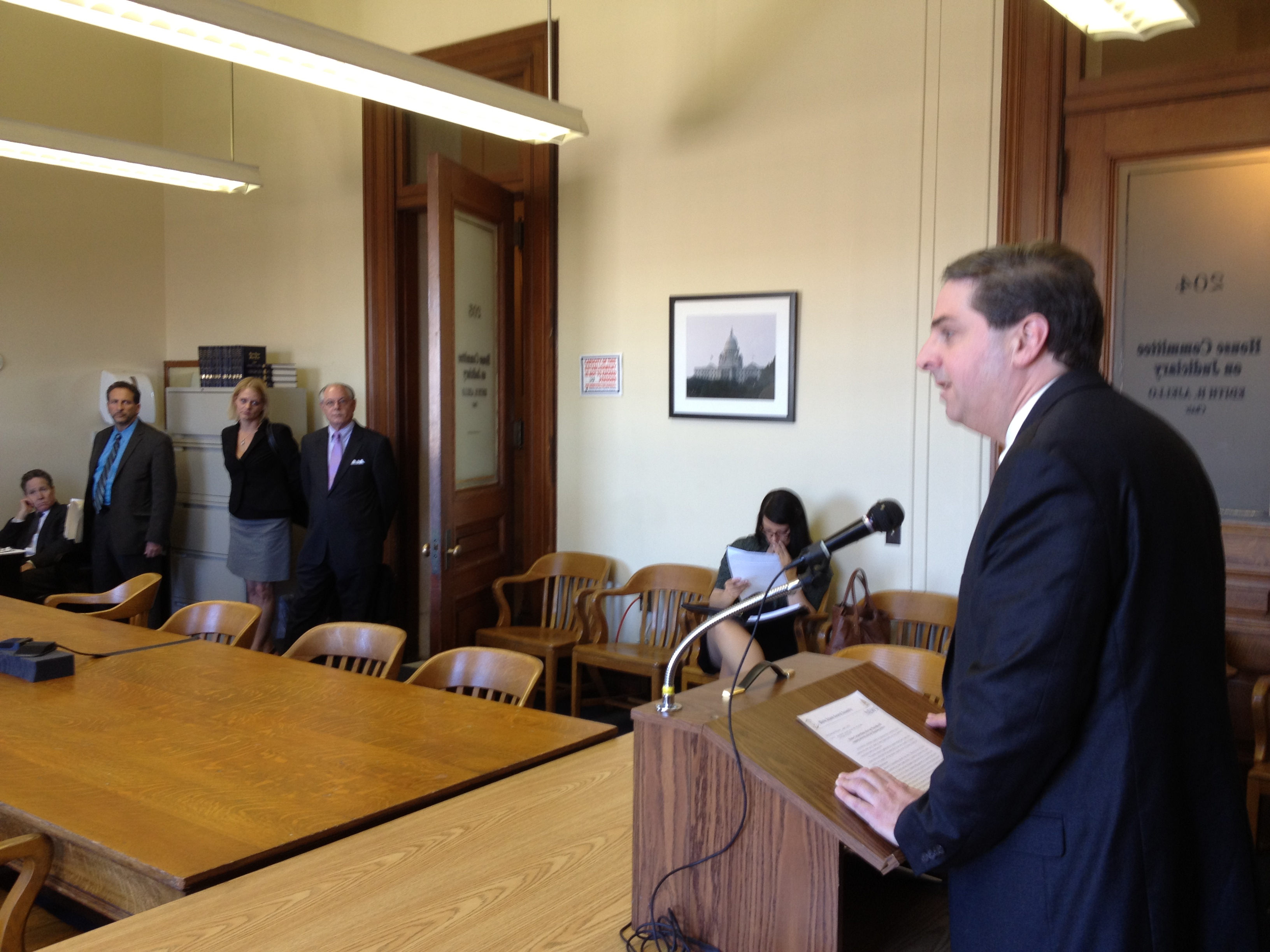
While payday loans have garnered a lot of attention at the State House this session, the legislature is also considering new regulations on another form of predatory lending – this one is known as litigation lending.
Litigation lending is the term used when a company will loan a potential plaintiff in a lawsuit money up front in hopes of being repaid – with huge interest rates – once a settlement is reached. It may seem like a benevolent service, but it often doesn’t end up being a benefit for the people who use these loans.
“These lenders charge outrageous interest rates to people who – as a result of an injury are in desperate straights – unable to work, without the funds they need to support their families and often facing enormous healthcare bills,” said Donald Migliori, the president of the Rhode Island Association for Justice, a group that advocates for consumer rights in the judicial system.
Rep. Michael Marcello, a Scituate Democrat, has sponsored a bill that would cap interest rates on such loans at 21 percent. Currently, the interest rates on these loans can be as high as 200 percent.
Referencing the payday loan bills, Marcello said yesterday, “This is just one more line for consumer protection.”
To understand just how predatory litigation loans are, one need look no farther than how they came to be. According to a recent article in the Rhode Island Bar Journal, “the origins of the [litigation finance company] industry are illuminating.”
A former Las Vegas loan shark and mobile home park developer named Perry Walton came up with the concept in 1998 after pleading guilty to “extortionate collection of debt” in another scheme, according to the Bar Journal.
“Walton began loaning money to plaintiffs, structuring these advances as ‘contingent obligations’ in order to sidestep usury laws,” according to the Bar Journal. “He then invited would-be lenders to seminars, charging as much as $12,400 to impart the secret of his lucrative new scheme. Two years later, 400 people has been trained by Walton and a new subprime industry was born.”
The Bar Journal referenced an example of a man who was injured at work and brought suit but needed surgery well before a settlement could be reached. He borrowed $25,000 from LawCash for the surgery. Because the 3.85 percent interest rate compounded monthly, he ended up owing $48.94 in interest daily. The man earned $80 a day prior to his accident.
“Every day, in every state, persons who have been injured by others’ negligence turn to [litigation loans] for desperately needed funds,” according to the Bar Journal. “It is only reasonable that they not be further victimized by usurious loans.”

